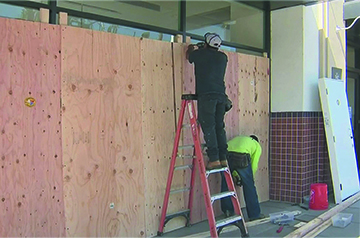“I am still making order out of chaos by reinvention.”
— John le Carre

by Luke Schmaltz
Jeff Bezos’ Amazon has prospered greatly from the Covid-19 shutdown along with McDonald’s, Walmart, Target, and many other wealthy Fortune 500 corporations.. Conversely, many of the most unfortunate economic casualties of the Covid-19 shutdown are small businesses — a staggering percentage of which will not recover. Among these, many of the hardest hit are family-owned food and beverage establishments and independent retailers.
Currently, the nation’s financial spine appears to be either broken or at the very least severely out of alignment. Unfortunately, the middle class can’t just go hobbling down to the economic chiropractor and get its mangled column of vertebrae snapped back into place. Rather, the health of each small yet crucial section is going to have to be nurtured back to solvency one joint at a time.

A Personality Crisis
Doing this is going to require innovation, experimentation, and the willingness to abandon some elements of the old fiscal paradigm. The Washington Post recently reported that over 100,000 small businesses have closed down permanently due to the Coronavirus fallout, and more are expected. This year’s decimation of small business has created a massive void in the marketplace as a whole. The character and warmth of family-owned and operated businesses that are no longer there has left consumers with an ever-dwindling set of bland, prefabricated cookie-cutter options. As most folks with even a fraction of personality will agree — that will not do.
The independent entrepreneurial spirit is strong in many Americans, and some would rather work for themselves 80 hours a week than clock in and out of a regular job and toe the line to the corporate status quo. Independent mom and pop businesses can and will etch their place in the economic landscape once again. If you are willing to step out onto shaky ground, there are a few takeaways from the current crisis you can arm yourself with so that the next stay-at-home order will not mean curtains for your piece of the American Dream.
Brass Tacks Of Business

Retail shops and dine-in restaurants carry the always present, ever-increasing burdens of rent, insurance, property tax, loan payments, utility bills and on and on. Before dollar one can be considered profit, these costs must be met. If your passion is preparing delicious food or supplying people with items they need, consider operating from modest digs for starters or better yet, skip the storefront altogether and set up shop from home. Rather than wait for random foot traffic to wander through the door, you might consider marketing to your immediate community and perhaps to an extended clientele within reasonable, deliverable radius. Plus, if your business is non-perishable goods, there’s always the good ol’ United States Postal Service.
Interact With Your Neighbors

By creating commerce and delivering value to your community, you are playing an important role in bolstering your small section of the backbone. In this scenario, your neighbors and fellow Denverites are your clientele, and developing relationships with them is crucial to your success. For this to happen, however, there must be a general consensus that fast food and big box stores are not the only options when it comes to enjoying professionally prepared meals and purchasing clothes, accessories and gifts. With the unfortunate dwindling of mom and pop places to frequent, people are eventually going to get sick of unhealthy fast food, generic products and soulless interaction. This newly-emerging niche is where small, home-based and low-overhead businesses owners can step in and make a living — and perhaps a difference in their community.
Reach Out In Old And New Ways
Spread the word about your products and services by talking to people in your immediate community. If the quality you present is on par with your passion for your business — those you serve will almost certainly tell their family, friends and neighbors about you. Also, the internet, despite its flaws, is still a powerful tool for doing business — perhaps now more than ever. You can cheaply and effectively build and maintain a clientele via internet marketing — specifically by email. You will need a basic website, an on-page email capture feature and an email management service. All can be acquired and maintained for a few dollars a month. The scope of this article is not broad enough to go into all of the nuts and bolts of this, but please know that for the curious, there are volumes of free information available about every facet of online marketing.
Subvert The Supply Chain
Locally sourcing raw materials is an essential component of a community-focused, small business resurgence. Large agricultural distributors are in the same category as fast food chains and corporate retailers. They are only concerned with numbers and have no contingency in their business plans for building and sustaining communities. On the other hand, according to farm flavor.com, there are 36,180 farms and 156 farmers markets in the state of Colorado. Plus, delivery services such as Grub Hub, Door Dash and Uber Eats are available to deliver just about anything edible you may produce to your local customers. As the locally-sourced, delivered inventory model grows, so too will regional services designed to meet that demand. Currently, Coloradofreshproduce.com and Farmtoforkcolorado.com are serving the entire Denver metro area and surrounding suburbs.
While some of what is presented here is speculative, the fundamentals of what make small businesses volatile are definite: high overhead, a disconnect with the community and outdated marketing strategies. What makes them invaluable, however, is that they are run by human beings who share the same aspirations, concerns and neighborhood as you.
Amazon & Starbucks: Jeff Bezos’ Amazon,
at right,
and
Starbucks have prospered greatly
from the Covid-19 shutdown.
